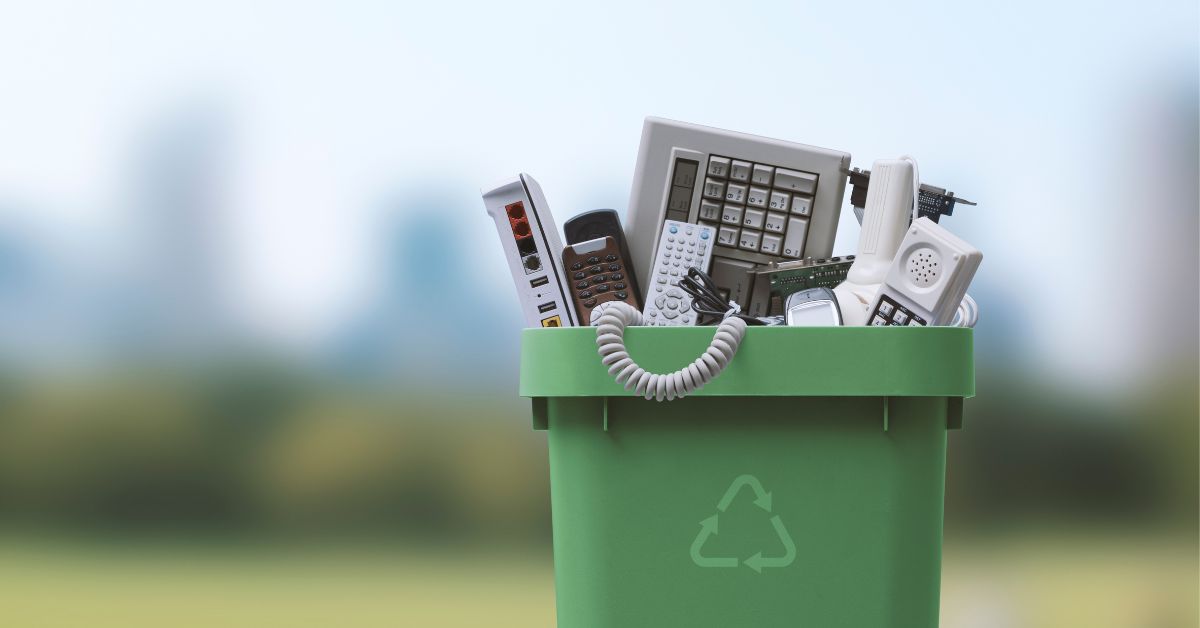Introduction to Sustainable TV Recycling
Television sets have evolved significantly, transitioning from bulky CRT models to sleek flat screens with vivid displays and advanced features. However, with these technological advancements comes the challenge of disposing of obsolete units responsibly. Many individuals need to know the proper methods to throw away a TV, which is essential to safeguard the environment and promote recycling. This article delves into the best practices for sustainable recycling and disposing of TVs, ensuring environmental safety, and promoting resource recovery. Through understanding and adopting these measures, we can mitigate the environmental impacts of TV disposal and contribute to a more sustainable future.
The Need for Responsible TV Disposal
E-waste, also known as electronic waste, is becoming a significant issue worldwide. Abandoned televisions significantly contribute to electronic waste, frequently including dangerous substances such as lead, mercury, and cadmium. These chemicals can seep into the ground and water, posing serious health risks to people and animals. TVs also possess valuable components such as copper, glass, and plastic, which can be reclaimed and reused. By responsibly disposing of TVs, we protect our environment from toxic pollutants, conserve natural resources, and reduce the need for raw material extraction. It is estimated that millions of tons of e-waste are generated every year, and responsible disposal practices are crucial in curbing this trend.
How to Safely Dispose of Your Old TV
- Contact Local Recycling Centers: Many communities offer e-waste recycling programs that accept TVs as part of their services. Reach out to your local facility to understand their drop-off policies and procedures. These centers are equipped to handle dismantling and recycling TV components, ensuring that hazardous materials are managed safely and valuable materials are recovered for reuse. Some centers even offer pick-up services for large electronic items, making it convenient for consumers to dispose of their old TVs responsibly.
- Manufacturer Take-Back Programs: Some TV manufacturers have implemented take-back or recycling programs to help consumers dispose of their old TVs. Check with your TV brand to see if they offer such services. Manufacturer programs often ensure that TVs are recycled in an environmentally sound manner, and sometimes, they offer incentives or discounts for returning old units. By participating in these programs, consumers can support a closed-loop system where manufacturers take responsibility for the entire lifecycle of their products.
- Donation: Think about donating your working TV to a non-profit organization or school. It’s an excellent way to contribute to the community and guarantee that the TV is repurposed instead of thrown away. Numerous organizations require working electronics and will be grateful to receive your donation, increasing the lifespan of the TV and minimizing waste. Moreover, giving away your television can sometimes result in a tax deduction, offering a financial advantage.
Environmental Benefits of TV Recycling
Recycling TVs offers numerous environmental benefits. By processing old TV sets, we can recover valuable materials, reduce the demand for raw materials, and minimize the environmental impacts of mining and extraction. Proper recycling also prevents harmful chemicals from contaminating the environment, as recycling facilities safely manage and dispose of these substances. TV recycling contributes to a circular economy, where products and materials are continuously reused and recycled, reducing waste and conserving resources. This cyclical approach supports environmental sustainability and promotes economic stability by creating jobs in the recycling industry.
Challenges in TV Recycling
Despite the clear benefits of TV recycling, several challenges still need to be addressed. Many recycling centers need more resources and funding to dismantle and process TVs safely. The complexity and variety of TV designs make recycling efforts more labor-intensive and costly. Furthermore, consumers’ improper disposal of TVs exacerbates the problem, leading to increased e-waste and environmental pollution. Addressing these issues requires collaborative efforts, including educational initiatives to raise awareness about proper disposal methods and stricter regulations to ensure responsible recycling practices. By improving infrastructure and policies, we can overcome these barriers and enhance the efficiency and effectiveness of TV recycling programs.
Insights from the Recycling Industry
According to a report by the EPA on electronics donation and recycling, only a small percentage of electronic waste, including TVs, is properly recycled. Enhancing public awareness and increasing access to recycling facilities are crucial to improving these statistics. Industry insights suggest that expanding recycling infrastructure and offering more convenient drop-off locations can significantly boost recycling rates. Moreover, incentivizing consumers and manufacturers to participate in take-back programs can further promote responsible recycling practices. By leveraging technology and innovation, we can develop more efficient recycling processes and encourage broader participation in e-waste management initiatives.
The Future of Sustainable TV Disposal
The progress in recycling technologies offers hope for better and environmentally friendly ways to dispose of TVs. Advancements in automated disassembly and material retrieval procedures can enhance recycling endeavors, increasing efficiency and environmental friendliness. In addition, initiatives such as Extended Producer Responsibility (EPR) incentivize manufacturers to create more convenient products to recycle and discard. EPR policies shift disposal costs to manufacturers, motivating them to develop products that are sustainable and easily recyclable from the outset. Promoting cooperation among government, businesses, and consumers could lead to a more sustainable method of handling electronic waste and minimizing the environmental effects of television disposal.
Conclusion: Taking Action for a Greener Tomorrow
Each little action matters in the realm of environmental preservation. Properly disposing of and recycling TVs helps safeguard the environment and support the sustainable management of resources. We can have a big influence by embracing responsible recycling methods and backing sustainable projects. Through collaboration and informed decision-making, we can secure a more environmentally friendly and sustainable future for future generations.

